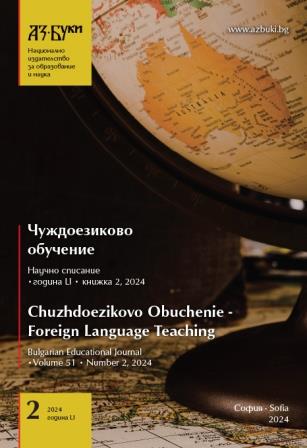За емоционалните състояния и техните синтактични прояви
On Emotional States and their Syntactic Representation
Author(s): Yovka Tisheva, Marina DzhonovaSubject(s): Language studies, Language and Literature Studies, Foreign languages learning, Applied Linguistics, Philology
Published by: Национално издателство за образование и наука „Аз-буки“
Keywords: positive emotions; emotives; argument structure; experiencer, Bulgarian
Summary/Abstract: The study focuses on the analyses of syntactic structure of some predicates and state predicatives denoting positive emotion: veselya (to make someone happy, in a good moon), veselya se (to frolic, to party), vessel sam (to be happy), veselo (mi) e (to be in a good mood), veselba e (it is fun). Our aim is to provide a syntactic model representing argument structure of predicates and predicatives from this thematic group. The syntactic realization of arguments, semantic role hierarchy, and specifics concerning the referentiality of the nominal phrases in argument position are examined. The analyses show differences both in the semantic structure of predicates and predicatives and in the syntactic realization of their arguments. In contrast to other emotional predicates, veselya and veselya se have only nominal phrases as complements. While the analyzed verbs represent causative and dynamic predicates, respectively, the predicatives vessel, vesselo denote emotional states. Nominal phrases, as well as complement clauses can be used in complement positions. In this respect, the syntactic realization of predicatives is similar to the one of other emotional state predicatives, such as radosten sam (to be happy), radostno (mi) e (it is rejoicing).
Journal: Чуждоезиково обучение
- Issue Year: 51/2024
- Issue No: 2
- Page Range: 154-167
- Page Count: 13
- Language: Bulgarian
- Content File-PDF

